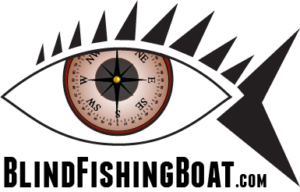The Sightless Fishing Advantage
I get a lot of emails from people and their family and friends who are experiencing sight loss. Many are of the belief that all fishing involves watching bobbers and without this ability it’s not doable. The longer I fish however, the more I realize that fishing is a sport everyone undertakes with a visual handicap.
Fishers generally see fish after they have been captured, and then often only for the briefest of moments; long enough to remove the hook and snap a photo. Unlike hunting, only about 5% of a fisher’s time is spent pursuing fish that have been sighted. Fishing has more to do with experience, timing and location. Luck also has little to do with it.
Fishing challenges people’s dependency on sight and requires the use of other senses. From selecting the right bait, to choosing the right sensitive rod, to picking the thinnest possible line, to formulating a mental image of what lies beneath the waves using electronics, the entire sport is built around devices that make up for our inability to see the fish we pursue.
Experienced fishers without sight have the ability to focus exclusively on their sense of touch. Sighted fishers are often distracted by things they see that have nothing to do with the task at hand. My non-sighted clients often out fish their sighted guides when bottom bouncing for Walleye or fishing tubes for Small Mouth Bass.
Bait placement is a crucial aspect of fishing. Some say 80% of the water we fish is barren, and that fish utilize structure for cover. But fish also move around and not all species of fish play the wait and see game, preferring instead to actively seek out their next meal.
In short, where sighted fishers may have an advantage in identifying likely cover that fish might be residing in, non-sighted fishers are more likely to be concentrating on what’s taking place at the end of their line. All professional fishers will tell you that focus is one of the biggest contributors to their success in tournaments. Fishers without sight have an advantage in that they aren’t distracted visually, and their sense of touch is more refined. It makes sense therefore, that fishing is ideally suited to fishers without sight in most circumstances.
